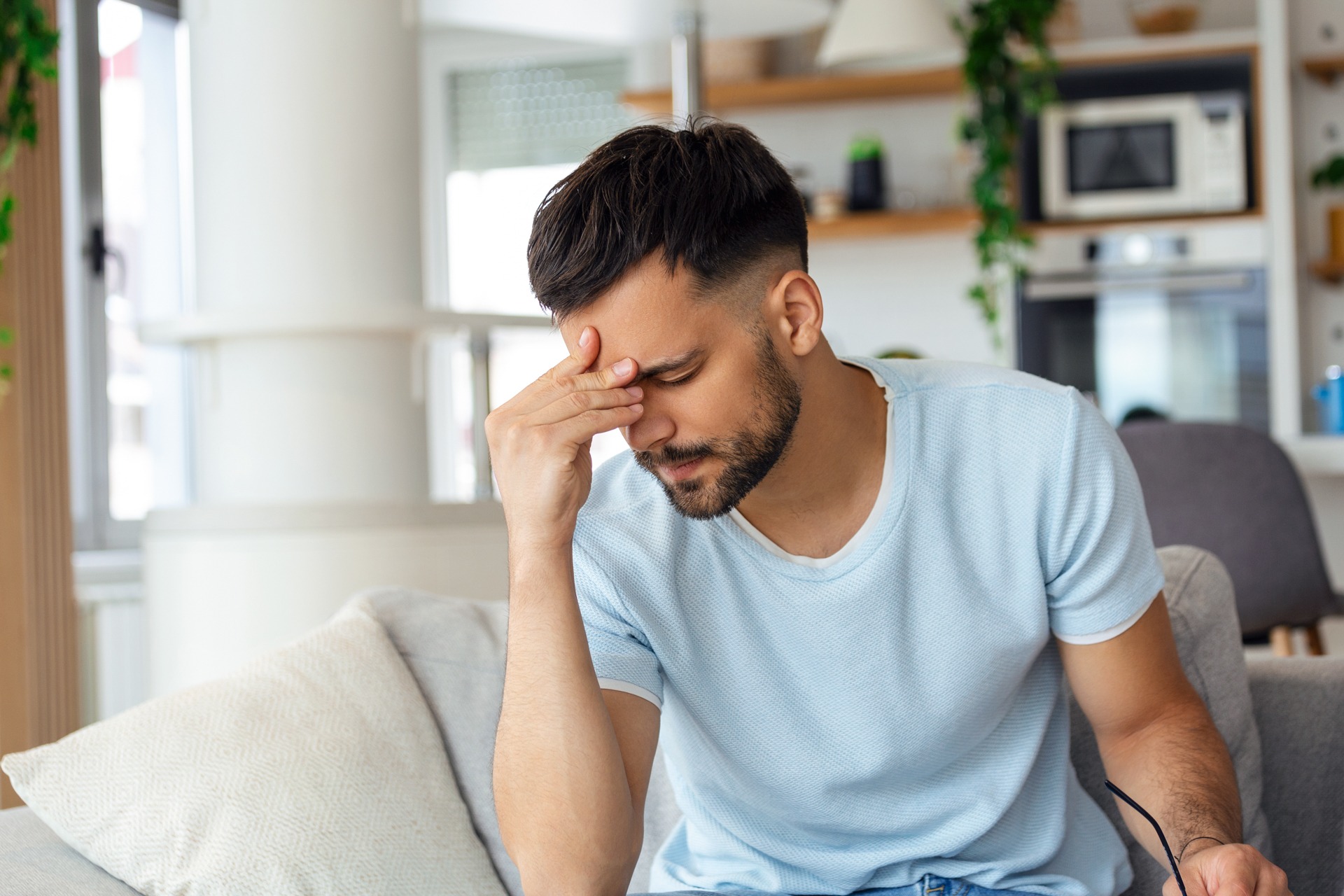Anxiety is the body’s natural reaction to stress. In fact, anxiety is something many of us experience on a fairly regular basis based on a number of factors. However, when anxiety levels reach a point where it hinders someone from being able to go about their daily life or perform important tasks, it can become debilitating.
Whether you are someone who experiences anxiety regularly or you may only deal with the occasional pop-up of anxiety, knowing how to identify anxiety triggers is crucial for not just managing symptoms but also trying to prevent anxiety from overtaking your life. Understanding what causes anxiety and learning strategies to cope can make a significant difference in improving your overall quality of life.
In this blog, we will take a deeper look at how you can recognize anxiety triggers, the common symptoms associated with anxiety, some helpful coping mechanisms, and how Crestview Recovery can help you or a loved one overcome their anxiety issues with outpatient anxiety treatment and live a happy and healthy life.
How To Identify Anxiety Triggers?
Before discussing ways to tackle anxiety head-on, you must first be able to recognize when you may find yourself in a situation where you may experience anxiety. Being able to not just identify anxiety triggers but do so successfully requires self-awareness and observation.
For most people, anxiety does not occur randomly. It is brought on by one or more underlying causes. By recognizing patterns and pinpointing the sources of anxiety, you can then take proactive steps to manage and reduce your anxiety levels.
Tips For Identifying Anxiety Triggers

So, what are some ways that you can properly identify anxiety triggers? Well, here are some helpful tips for doing just that:
If your brain perceives that something is not right, it will alert the rest of your body. This “alert” may come through muscle tension, an increase in your heart rate, or feelings of restlessness. When this happens, pay attention because chances are your brain is reacting to something anxiety-causing.
Loud noises, crowded spaces, or certain social situations can act as anxiety triggers. If you feel yourself getting anxious, look around and see if you can pinpoint if something in your environment may be the root cause.
Things such as negative self-talk or catastrophizing can contribute to anxiety. Being able to properly recognize and identify these thought patterns can help pinpoint the cause of anxiety.
Writing down daily thoughts, experiences, emotions, etc can help in recognizing patterns that may be causing anxiety. If you experienced any specific instances of stress or anxiety during the day, make sure and note any specific situations, people you were around, or events that took place before or during your bout with anxiety in order to help determine what may have been the underlying cause.
Eating poorly or being sleep-deprived can put extra stress on the body, thus making it more susceptible to anxiety. By keeping a record of sleep patterns and dietary habits you can determine if either or both are playing a role in your anxiety.
Past traumas or stressful experiences can cause lingering anxiety. Recognizing unresolved issues can provide insight into current triggers.
Certain relationships or social interactions may cause stress. Identify people or social settings that consistently lead to feelings of anxiety. This is where keeping that journal that we talked about can be particularly useful.
What Are Anxiety Symptoms?
Knowing what anxiety looks and feels like is the only way that we can successfully combat it when we find ourselves in a moment of panic or feeling anxious. Anxiety symptoms can manifest in multiple ways including physical symptoms, emotional and cognitive symptoms, and behavioral symptoms. Let’s take a look at all three:
- Rapid heartbeat
- Shortness of breath
- Sweating
- Shaking or trembling
- Dizziness
- Muscle tension
- Fatigue
- Gastrointestinal issues (nausea, upset stomach)s
- Excessive worry or fear
- Irritability
- Restlessness
- Difficulty concentrating
- Feeling overwhelmed
- Racing thoughts
- Avoiding certain situations or people
- Increased reliance on coping mechanisms like food, alcohol, or drugs
- Difficulty sleeping
- Procrastination or inability to complete task
What Triggers Anxiety?
We went over some tips for helping to identify anxiety triggers but the fact is that everyone is different and experiences anxiety in different ways. Their triggers may also differ as well. So, on that note, let’s take a look at some of the common anxiety triggers so that you may be able to better identify which apply to you:
- Stressful Situations – Work pressure, financial worries, or academic demands can contribute to heightened anxiety levels.
- Social Interactions – Public speaking, meeting new people, or social gatherings can trigger feelings of nervousness and self-consciousness.
- Health Concerns – Worrying about personal health or the well-being of loved ones can lead to persistent anxiety.
- Traumatic Experiences – Past trauma, including abuse, accidents, or loss, can cause long-term anxiety responses.
- Caffeine and Stimulants – Excessive caffeine intake, certain medications, or drug use can heighten anxiety symptoms.
- Uncertainty and Change – Major life transitions, such as moving, starting a new job, or relationship changes, can trigger anxiety.
- Negative Thought Patterns – Persistent negative self-talk and fear of failure can lead to anxiety episodes.
- Financial Difficulties – Struggling with debt, unexpected expenses, or job instability can create significant stress and contribute to ongoing anxiety.
- Overcommitment and Burnout – Taking on too many responsibilities at work, school, or in personal life can lead to exhaustion and anxiety from feeling overwhelmed.
- Lack of Control or Uncertainty – Situations where a person may feel powerless, such as global events, economic instability, or unpredictable circumstances, can significantly heighten anxiety levels.
How To Cope with Anxiety Triggers?

While some people may find success managing their anxiety on their own, others may need the help of professionals whether that be through a therapist, prescription medications, or both. Regardless of which of those categories you fall into, there are things you can do on your own throughout the day to help effectively manage your bouts of anxiety.
Below are some strategies that you may find effective:
Controlled breathing techniques, such as diaphragmatic breathing, can help regulate the nervous system and reduce anxiety symptoms.
Along those lines, utilizing techniques that incorporate deep breathing, such as mindfulness and meditation can help bring awareness to the present moment and reduce overwhelming thoughts.
While we are on the topic of deep breathing and meditation, those are just a few of the relaxation techniques that you can try. You may also want to consider yoga, progressive muscle relaxation, or listening to calming music when feeling stressed or anxious.
In addition to improving your overall health and well-being, exercise also releases endorphins, which can help improve mood and reduce stress levels.
In addition to regular exercise and/or physical activity, adequate sleep, balanced nutrition, and hydration also play a vital role in mental well-being.
Creating a structured daily schedule can provide a sense of stability and predictability, both of which can significantly cut down on stress and anxiety.
A fairly common reason why you might feel anxious is that you may feel like you are overextending yourself, in part because you are afraid to simply say the word “no”. Learning to say no to things can help limit your exposure to stressful situations, which, in turn, can help prevent anxiety.
Talking to someone you trust, whether it be a friend, family member, or loved one can provide comfort and perspective as it relates to your anxious feelings. Sometimes, having an outsider hear about your situation can also help bring a unique perspective that can help in better managing your anxiety.
As we touched on above, in some cases professional intervention and mental health treatment may be needed. It’s important to remember that, should professional help be needed, it’s ok. Professionals such as therapists can help provide support and guidance to help get your anxiety under control in a healthy manner.
Crestview Recovery Can Assist with Anxiety Triggers
While anxiety can feel overwhelming at times, it’s important to remember that you don’t have to go through it alone. In addition to seeking support from friends, family members, or loved ones, there are also professional options available as well.
At Crestview Recovery, we understand the importance of offering professional help to those who suffer from all types of mental health struggles, including anxiety. That’s why we offer a number of different treatment options including outpatient and partial hospitalization. Our compassionate team offers a variety of therapy options, including cognitive behavioral therapy, mindfulness-based approaches, and holistic treatments designed to support long-term mental health.
If you or a loved one is struggling with anxiety, contact us today. Together, we can work towards a healthier, more peaceful future.
































